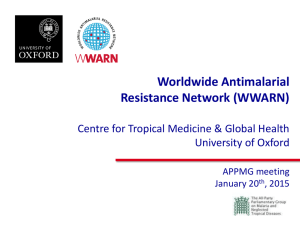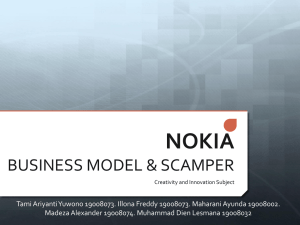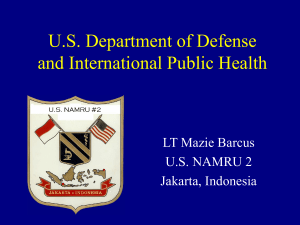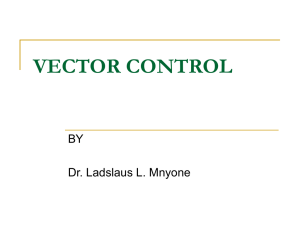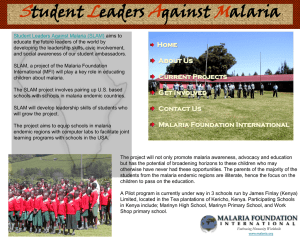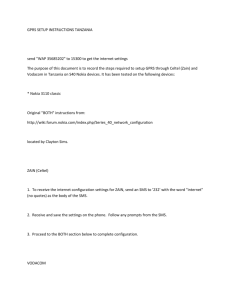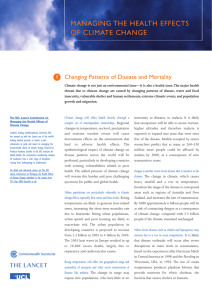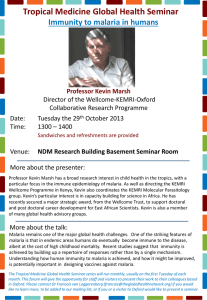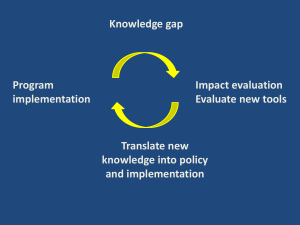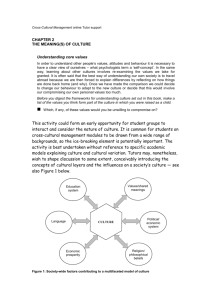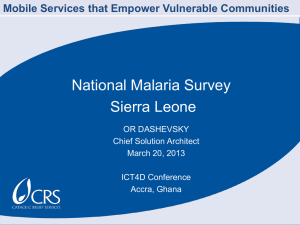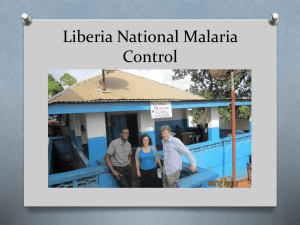MoSQuIT
advertisement
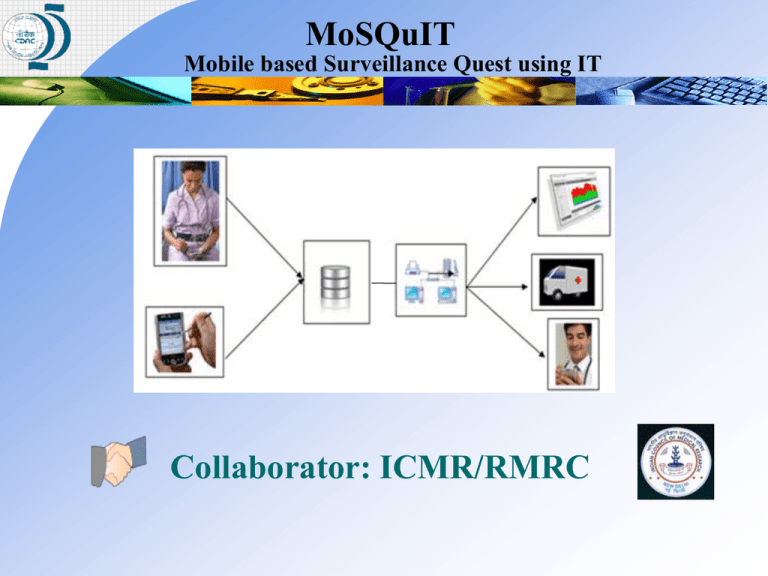
MoSQuIT Mobile based Surveillance Quest using IT Collaborator: ICMR/RMRC Objectives • Track, monitor the status of malaria in the community • Detect changes in trend, distribution of malaria in order to initiate investigative, control measures • Measure the effectiveness of antimalaria programme • Prevention & control Thrust on Malaria UN-Millenium Development Goals (MDG) MOHFW National Health Programs, India • National Vector Borne Disease Control Programme (NVBDCP) • Prevention & Control of Non Communicable Diseases • Pilot Programme on Prevention and Control of Diabetes, CVD and Stroke • National Programme for Prevention and Control of Deafness • Universal Immuization Programme • National Cancer Control Programme • National Aids Control Programme • National Mental Health Programme • National Iodine Deficiency Disorders Control Programme • National Programme for Control of Blindness • Revised National TB Control Programme • National Leprosy Eradication Programme • National Filaria Control Programme • National Tobacco Control Program Trend of Malaria Cases and Deaths 2001-2009 http://nvbdcp.gov.in/malaria3.html Surveillance • Surveillance as per WHO is the systematic process of collection, transmission, analysis and feedback of public health data for decision-making Conventional Malaria Surveillance flow Epidemiological Analysis takes 2-3 years Data transfer takes 15 days to one month Benefits Mobile based Vs Conventional Prevents delay in dissemination of data from field to decision-makers Early diagnosis reduces morbidity and mortality Early detection of epidemic situation Fast reporting, close to real time Improves accuracy of decision making Facilitates better treatment and care of patients Flow of MoSQuIT system Data Analysis Statistical analysis based on Malaria indicators (Annual Blood Examination Rate, Annual Parasite Incidence, Annual Falciparum Incidence...) Trend analysis based on Person, Place, Time Outbreak analysis, Predictive analysis Efficiency analysis to measure time-lag in various system components Deployment Architecture Mobile based Data collection J2ME based s/w Collect data(M1, M2) Store data (local) modem ASP.NET based Webservice Data Analysis Researcher Transfer data Mechanism (any one is used) GPRS SMS Data Transformation Direct load Alerts Data transfer – SMS (2) Data transfer – GPRS (1) Lab result updation (M2) Data validation Health worker Epidemiological studies GSM ASP.NET based Computation eng., PostgreSQL DB Supervisor, Lab technician (PHC) Physical Data load (3) Mobile Service provider Mobile Data validation Mobile Selection Parameters Low price Mobile Hardware Requirement/Specifications for MoSQuIT application• Real QWERTY keypad • Wider Screen Size • Long Lasting Battery backup • Bluetooth • Expandable Memory Card • GPRS Enabled • Robust Design • Data Cable Software Requirement of mobile for MoSQuIT• J2me enabled • Provision to enable /disable file Access Permission Service centre availability in NE Mobiles within the price range of Rs.10000 tested while finalizing• LG KP 500, Samsung Champ, Samsung Chat, Blackberry Curve 852, Motorokr E6, Nokia 5130, Nokia 5350, Nokia 5223, Nokia C3 Mobile satisfying all the parameters- Nokia C3 Stakeholders • Reports: Cases,Stock, Lab, Epidemiological indices, • Case analysis: Predefined queries, queries • Trend, Predictive Analysis • Master Data Entry • User Registration: Rights allocation • Admin: Data Back up •Alerts, Login, Data Mart • Case, Stock info, Slide dispatch • Epidemic alert • Lab report • Data Transfer: GPRS, SMS, Manual • Update record: Treatment info • Delete record • Reports: Cases, Lab, Stock • Data validation • Modify/Update data • Information about death of patient • Reports: Stock related data, Case, Lab, Epidemiological indices, • Data entry (Lab) • Send report to HW • Reports: Lab Accredited Social Health Activists Team Future Plan Key Partner: ICMR • Replication in several other states • Enhance to cover surveillance of more diseases (eg. Diarrhea, Tuberculosis, ...) in line with nation's health programme thrust areas
